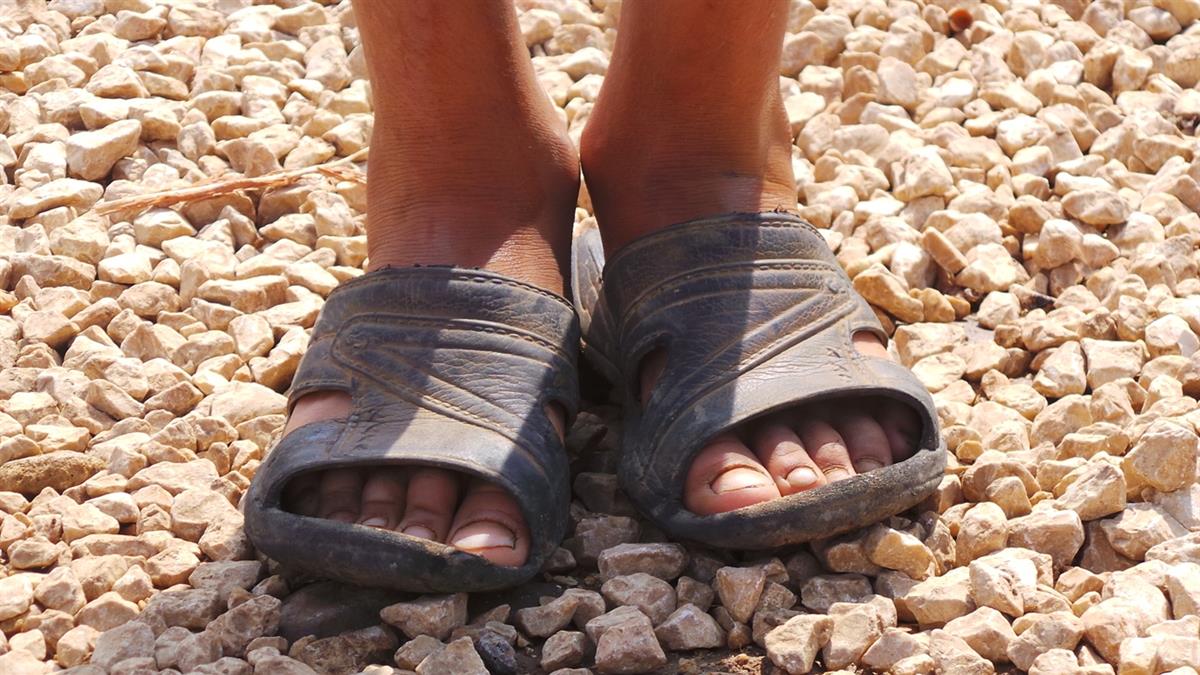
Today, there are 60 million refugees all over the world. A radical change in the world that we want to live as protagonists, not as passive observers. How can we do this? We can engage first of all by being surprised by this page of history and standing on the side of refugees. Refugees and us, eventually, we are all on the same road. The Secretary General of AVSI Foundation writes about the meaning of the “Tents Campaign” in a letter published in the Italian newspaper “Corriere della Sera”.
The “Tents Campaign” is a fundraising effort carried out by AVSI and thousands of volunteers across Italy during the Christmas season.
Giampaolo Silvestri, Secretary General of AVSI Foundation, Corriere della Sera
Dear Director,
Sultani is just over 40 years old and comes from Idlib, Syria. His skin is hardened by years of work under the sun in the restless land of the Middle East. Having fled from the war two years ago, Sultan is one among the 1.5 million refugees who currently live in Lebanon, a land in-between.
Nonetheless, he doesn't want to just hang around doing nothing and to allow the future of his children and his dignity to be swallowed up by boredom and emptiness. Sultan found an opportunity for a new job: to restore the Ebel Saqi forest, in Marjeyoun, South Lebanon, with fellow refugees. He also found a school for his children. A mere grain of sand against nothingness, waiting for the real opportunity to go back home.
In the wrinkles of Sultan's face you can read the possibility of a “new approach”, the one that Ban Ki-moon, Secretary-General of the United Nations, (Article in “Corriere della Sera” Nov. 11, 2015) wished for refugees and migrants, beginning from his personal story. An approach able to innovate if it is “humble” in the etymological meaning of the word, that is, belonging to the soil (humus), in other words rooted in reality.
The numbers of this phenomenon—60 million refugees in the world, the 24th most populous state, but a phantom state—are enough to classify this as a process of radical change that no one can solve but that, through an event similar to that lived by Sultan, one can live as a protagonist. How? A shift across all of civil society, even in our country, is needed; we need to be shaken by this page of history. We need to stand on the side of the refugees.
The invitation to walk with these people, even if only for a small stretch of their journey, is a challenge. But it is also the beginning of something new. This means thinking about those people who are forced to leave their homes because of war, persecution and hunger throughout their journey, from the very beginning through the various stops in transitional countries, and all the way into our country and neighborhoods.
Aware of their path means trying to identify with their experience in order to respond at different levels, not to simplify the matter but to engage through the complexity. One opportunity we have is to support these people “in their homes” as far as possible, in other words to enable some people to remain home.
Assistance is not subsidy: it's lighting the fuse, empowering the person and even a whole community. The form we chose to deliver assistance makes a difference: work projects, the so-called “cash for work” models, are needed in the refugee camps. A job enables a man to support his family and restores hope for a decent life and eventual homecoming.
And finally, when they arrive here in Europe, they need support. Of course, the current policy about refugees and migrants, as Ban Ki-moon asserted, is inadequate. It must be changed, but in the meantime it leaves room for us to welcome those who transit through Italy or those who try to take root in our cities without excluding their desire to eventually return home.